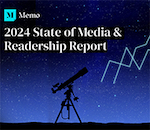Reporters in the nation's capital are saying they are being hit with permanent freezes by Congressmen who find some fault with their reporting or opinions. Attempts to mend fences go nowhere. PR staffers perform the role of blocking access.
 Rosen |
Rosen, whose article is titled, "DC deep-freeze," says Clyburn accused him of "sensationalizing" the Congressman's remarks in May 2011 that attributed many of President Obama's political problems to the "color of his skin."
Not only did Clyburn stop talking to him, but also his staff, friends and associates, says Rosen. He was dropped from Clyburn's e-mail list and his messages and calls went unanswered.
Attempts to mend fences went nowhere. Hope Derrick, communications director for Clyburn, performed the blocking role.
Rosen met Clyburn after a speech in February and asked to re-establish relations. Clyburn said he would have to "run it by Hope."
Her response to a request by Rosen's bureau chief resulted in an e-mail from Derrick that said, "Nothing has changed, and we will not be providing direct access for Mr. Rosen."
 Derrick |
A handwritten note left by Rosen at Wilson's office last year has been ignored.
Wilson was annoyed by Rosen stories on an ethics probe into Wilson's use of per diem foreign-travel funds.
Journalism Being "Marginalized"
The stonewalling stances of the two Congressmen are "extreme expressions of a broader and more destructive effort in Washington to marginalize independent journalism," writes Rosen, who received the National Press Club's award in 2012 for regional D.C. reporting.
Another victim of a "freeze" is Kevin Diaz, D.C. correspondent for the Minneapolis Star Tribune.
He is getting the "silent treatment" from Rep. Michele Bachman (R-Minn.), apparently because of his reporting on her alleged campaign-finance violations, writes Rosen.
Social media and private e-mail lists have given Congressmen a way to "avoid inconvenient questions from reporters," says Rosen.
"Why bother with us when they've got their own networks, magazines, websites, Facebook pages, Twitter accounts and blast e-mails?" he asks.
He notes that New York Times reporter Jeremy Peters claimed on July 15, 2012 that it was becoming "the default position" for D.C. reporters to allow sources to pre-approve quotes and make changes if they wished.
Facebook Has Secret Seminars
Rosen says Facebook has "secretive seminars at which it trains lawmakers and their aides to exploit social media."
He asked Facebook public-policy manager Adam Conner for an interview so he could write about the service.
Responding was PR staffer Brandon Lepow who turned down the request.
Lepow's e-mail said Rosen could report that "Facebook is excited to be a major communications platform where members of Congress and other elected officials can engage with their constituents on important issues that matter in their district and state."
Rosen said "This kind of non-answer echoes the responses reporters routinely receive from lawmakers these days."
"Today, politicians' constant online presence, maintained by armies of staffers and outside hired guns, surely costs Americans much more than the quaint system of franking (free mail) ever did, and yet it's accepted as business as usual in our digital lives."


 Trump Media & Technology Group today reported a $58.2M net loss on $4.1M in 2023 revenues, a disclosure that drove its stock price down 22.6 percent to $47.96.
Trump Media & Technology Group today reported a $58.2M net loss on $4.1M in 2023 revenues, a disclosure that drove its stock price down 22.6 percent to $47.96. Barry Pollack, an attorney at Wall Street’s Harris St. Laurent & Wechsler, has registered Julian Assange as a client with the Justice Dept. “out of an abundance of caution.”
Barry Pollack, an attorney at Wall Street’s Harris St. Laurent & Wechsler, has registered Julian Assange as a client with the Justice Dept. “out of an abundance of caution.” Paramount Global to slash 800 jobs in what chief executive Bob Bakish calls part of an effort to “return the company to earnings growth"... Rolling Stone editor-in-chief Noah Shachtman is exiting at the end of the month due to disagreements with chief executive Gus Wenner over the direction the magazine is taking... The New York Times broke the $1 billion barrier in annual revenue from digital subscriptions in 2023... Press Forward is investing more than $500 million to strengthen local newsrooms.
Paramount Global to slash 800 jobs in what chief executive Bob Bakish calls part of an effort to “return the company to earnings growth"... Rolling Stone editor-in-chief Noah Shachtman is exiting at the end of the month due to disagreements with chief executive Gus Wenner over the direction the magazine is taking... The New York Times broke the $1 billion barrier in annual revenue from digital subscriptions in 2023... Press Forward is investing more than $500 million to strengthen local newsrooms. The majority of news articles are read within the first three days of publication, according to a recent report.
The majority of news articles are read within the first three days of publication, according to a recent report. The Los Angeles Times gives pink slips to 115 people or 20 percent of its newsroom staff... TIME is also laying off about 30 employees, which is approximately 15 percent of its editorial staff... The Baltimore Banner, which was launched by Stewart Bainum in 2022 after he failed to buy the Baltimore Sun, added 500 subscribers per day in the three days following Sinclair Broadcast Group's deal to purchase the Sun.
The Los Angeles Times gives pink slips to 115 people or 20 percent of its newsroom staff... TIME is also laying off about 30 employees, which is approximately 15 percent of its editorial staff... The Baltimore Banner, which was launched by Stewart Bainum in 2022 after he failed to buy the Baltimore Sun, added 500 subscribers per day in the three days following Sinclair Broadcast Group's deal to purchase the Sun.


 Have a comment? Send it to
Have a comment? Send it to 
No comments have been submitted for this story yet.